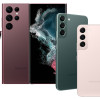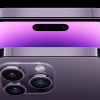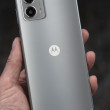Review: ZTE Vital for Sprint
Media
The Vital includes the native Google Play Store and associated apps for consuming media in addition to apps. The store lets Vital owners purchase music, television shows, books, and magazines, as well as movies and movie rentals. Each type of content has its own app for playback, and they are all pre-installed on the Vital. The Vital also includes the stock Android MP3 player, video player, and YouTube apps.
A handful of Sprint's media apps are on board, including Sprint TV & Movies and Sprint Music Plus, and there are more in the Sprint Zone. Sprint TV lets you stream video content over the network or Wi-Fi. It costs $2.99 per month to use. The selection mirrors that of primetime with content available from providers such as Disney, FOX, Nickelodeon, and CBS. Sprint Music Plus is another avenue through which you can choose to purchase or listen to music.
The Vital also includes an app called Media Share, which is made by Twonky. This app makes use of DLNA to ease the pain of wirelessly connecting with and sharing content to HDTVs and other DLNA-compatible equipment. I found the app easy to use and managed to pair the Vital to my TV set via my home Wi-Fi network with no trouble.
Camera
Despite the presence of a physical camera button, the Vital must first be unlocked before the camera can be used. Thankfully there is a camera shortcut on the lock screen that takes you directly to it. Alternately, if you're using the phone already, a long press of the camera button will launch it. The camera app opens fairly quick.
The camera software is rather basic. The viewfinder takes up the central portion of the screen, and there are gray stips along either side for accessing the controls and functions.
Four settings controls are visible (front-facing camera, shooting mode, effects, and full settings). They work just as you expect them to, with drop-down menus that make selecting between the options a breeze.
There are 17 different shooting modes, which include normal, panorama, macro, night, etc. There are also 12 different filters (think Instagram). The controls for resolution, picture quality, and so on are all easy to adjust. The Vital can be set to recognize faces, which helps it detect blinks and smiles, as well as eliminate red-eye. The camera is quick to do everything. I also like that it has touch-to-focus.
Photos
The Vital's 13-megapixel shooter does a fine job, but not an excellent one. For the most part, images were crisp and in focus, and exposure was accurate. White balance was a bit inconsistent, though, and tended to lean towards the yellow end of the spectrum, especially with indoor shots. The flash helped alleviate that problem a little bit. I saw a tad bit more grain than I wanted to. If you want me to compare the Vital's camera directly to some of its competitors, there's no doubt today's top phones do a better job than the Vital.
Video
The Vital can capture video at a max. resolution of 1080p HD. In general, video results look pretty good. Video footage I captured was in focus and exposed correctly. White balance was more consistently accurate than it was for stills. You'll be proud to share your mini masterpieces with friends on YouTube and other social networks.
Gallery
The Vital uses the stock Jelly Bean gallery app. I find it easy to share pictures via this app, but the separate albums can be a bit annoying to sort through because the gallery automatically loads all your Picasa/Google+ photos, in addition to what's on the camera roll. The gallery lets you rotate and crop images, as well as adjust color, reduce red-eye, and apply a handful of different filters.
Apps
Sprint has been proactive in reducing bloatware on its Android phones, but the VItal is an exception. Not only are Sprint Zone and iD on board, but so are Sprint TV & Movies, Sprint Music Plus, and a handful of useless games and other random apps. Both Sprint Zone and Sprint iD let you do nothing but download other Sprint-branded apps and services.
Bluetooth
The Vital's Bluetooth radio connected to other devices with no problem. Call quality was, however, a real problem. The quality simply isn't good enough. I found it impossible to hear people when attempting to hold conversations through headphones or my car's hands-free system. On the flip side, music sounded really good through stereo Bluetooth speakers.
Browser
The Vital has the generic Android browser installed in addition to Chrome. I found both browsers to be good at loading web sites and rendering content, but browsing via Sprint's 3G network is still painfully slow. Browsing will surely be speedier in areas where Sprint's LTE network is available, but we were unable to test the Vital under LTE. The browsers themselves are fine for surfing the net.
Clock
The Vital has a white digital clock that is visible from the lock screen. It cannot be customized or changed. It's difficult to read outdoors, and is best paired with a dark background image.
GPS
Google Maps is pre-installed on the Vital, as is TeleNav's free Scout application. Both are capable pieces of software for discovering local points of interest and routing directions to them. As far as the GPS radio is concerned, it is accurate, but not all that quick. It often took more than 30 seconds to find me, and it was never more accurate than about 25 feet to my actual position.






















































 Hands-On: ZTE Vital for Sprint
Hands-On: ZTE Vital for Sprint
 Virgin Pitches the Supreme as a Media Phone
Virgin Pitches the Supreme as a Media Phone
 Sprint Lands the ZTE Vital with 13MP Camera
Sprint Lands the ZTE Vital with 13MP Camera
 Samsung Refreshes Galaxy S Series with S Pen, New Cameras
Samsung Refreshes Galaxy S Series with S Pen, New Cameras
 iPhone 14 Plus Offers a Big Screen For Less
iPhone 14 Plus Offers a Big Screen For Less
 ZTE Vital / Supreme
ZTE Vital / Supreme




